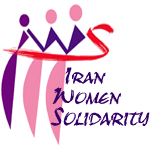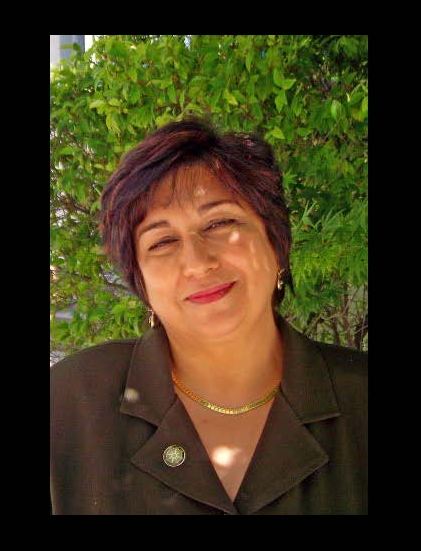OpenDemocracy – On the brink of the Persian New Year, on 17 March 2008, human rights defenders welcomed the news of the release of Mokarrameh Ebrahimi and her son Ali from prison in Takestan, Qazvin province, Iran. Mokarrameh had been awaiting execution by stoning for the past eleven years. She was sentenced to death after being convicted of adultery, along with Ja’far Kiani with whom she had two children. While in prison, she gave birth to their son Ali who remained in custody with his mother after he was born. Her partner, Ja’far Kiani was stoned to death on 5 July 2007.
A rare ruling
Mokarrameh’s release was the outcome of the efforts of the Stop Stoning Forever Campaign in Iran, the tireless efforts of her attorney, Shadi Sadr and the global human rights community and women’s movement who put pressure on the Iranian government.
Shadi Sadr said, “It was a rare ruling… I cannot tell how the commission came up with this decision… But you cannot deny the role of public opinion and domestic and international pressures.”
When news that the sentence of stoning to death of Mokarrameh Ebrahimi and Ja’far Kiani was about to be carried out, activists from Iran’s Stop Stoning Forever campaign publicized the plans for these executions. Their efforts led to a widespread objection to the sentence by civil society, women’s movement and human rights defenders in Iran and globally. On 20 June 2007, news reports stated that the head of the judiciary in Iran, Ayatollah Mahmoud Shahroudi, had issued a written order requiring the judiciary in Takestan to halt the execution temporarily. However, the suspension of these sentences lasted only two weeks and on 5 July Ja’far Kiani was stoned to death in Aghche-kand, a village outside Takestan.
In mid-October 2007, Shahroudi sent Mokarrameh Ebrahimi’s case to the Amnesty and Clemency Commission, who have now ordered her release. She is believed to have been pardoned by the Supreme Leader, Ayatollah Ali Khamenei.
Mokarrameh had stated all along that she was under the impression that her husband had divorced her. (In Iran, divorce is the exclusive right of a man, and a man can divorce his wife whenever he pleases – a law challenged by the One Million Signatures campaign to change discriminatory laws). She maintained that she had married Ja’far in good faith, and in the community they were living, they were known and accepted as being a family. Although there were no witnesses to the alleged crime of adultery, or having a child out of wedlock, the death sentence was based on the judge’s “knowledge” or “perception” of adultery.
Eradicating stoning forever
According to Amnesty International, at least ten women in Iran – Khayrieh, Kobra N, Fatemeh, Ashraf Kalhori, Shamameh Ghorbani, Leyla Ghomi, Hajar and sisters Zohreh and Azar Kabiri-niat – are still at risk of being stoned to death, along with two men, Abdollah Farivar and an unnamed Afghan national.
The Global Campaign to Stop Stoning and Killing Women defines stoning as: “A method of execution in which an organized group throws stones or rocks at the person they wish to execute. Although it takes many different forms, stoning has been used throughout history and in many religious and cultural traditions as a type of community justice or capital punishment. In Iran, as in Sudan, stoning is codified into law for adultery. Although the head of the judiciary of Iran, Ayatollah Shahroudi, decreed in 2002 that stoning would no longer be practiced in Iran, the laws were never officially removed from the penal code and stoning sentences continue to be handed down by lower judges today.”
The practice of stoning is a cruel and inhumane punishment, irrevocable in nature. The Islamic Republic of Iran is a State party to the International Convention on Civil & Political Rights [(ICCPR)->http://www.unhchr.ch/html/menu3/b/a_cescr.htm] which states in Article 6 that “in countries which have not abolished the death penalty, sentence of death may be imposed only for the most serious crimes.” Executions for crimes “beyond intentional crimes with lethal or other extremely grave consequences,” are considered to violate the convention; executions for adultery clearly fall into this category. According to Article 7 of the convention “no one shall be subjected to torture or to cruel, inhuman or degrading treatment or punishment.” As a particularly brutal form of execution, death by stoning clearly violates the provisions of this Article.
The Islamic Penal Code of Iran allows execution by stoning as a punishment for adultery. Stones are thrown at the convicted individual, who is buried up to the waist (if he is a man) or up to the chest (if she is a woman), until the individual dies from impact of the blows. The fact is that the vast majority of people being sentenced to death by stoning are women. Women suffer disproportionately from this cruel punishment. The overall discrimination against women in all aspects of life leaves women more susceptible to conviction for adultery. Women are not being treated equally before the law which is a clear violation of the basic human rights of Iranian women. Women are particularly vulnerable to unfair trials due to their lack of resources, under representation and high rates of illiteracy.
The “Stop Stoning Forever” campaign is a grassroots movement launched on 1 October 2006 by Iranian feminists. Since then, according to Amnesty International, six people have been saved from stoning: Hajieh Esmailvand, Soghra Mola’i, Zahra Reza’i, Parisa and her husband, Najaf, Zahra Reza’I and Mokarrameh Ebrahimi. Others have been granted stays of execution, and some of the cases are being reviewed or re-tried.
The “Stop Stoning Forever” is now a partner with The Global Campaign to Stop Stoning and Killing Women. The goal is to raise awareness on culturally-justified practices that abuse women’s human rights. The women’s movement will keep moving forward, not only to save women from being stoned to death, but also to eradicate all forms of discrimination and violence against women. Nothing more and nothing less.
* Elahe Amani is a gender, peace and social justice activist. She has taught courses on the Global Women’s Movement and Women in Cross Cultural Perspectives at the California State University (CSU), Long Beach and Fullerton. She is currently chair of the Women Intercultural Network (WIN), a global women’s organisation with grassroots circles in Uganda, Japan and Afghanistan. Amani has been active with the UN Commission on the Status of Women (CSW) and taken part in several panels on issues related to women’s human rights, the Stop Stoning Forever campaign and the One Million Signatures campaign to change discriminatory laws in Iran.

